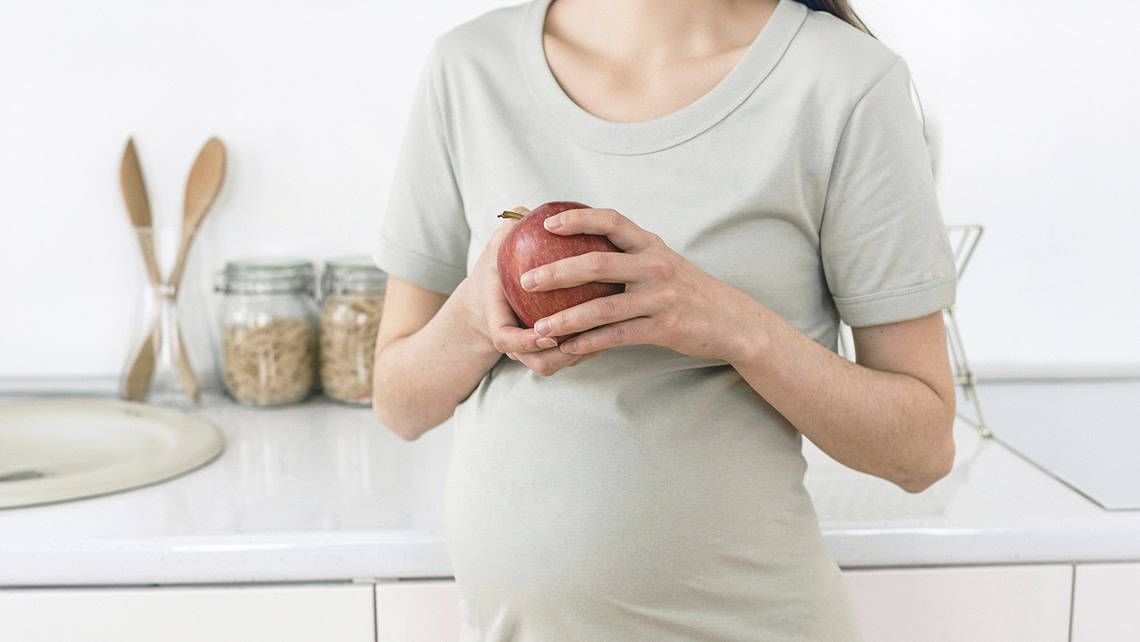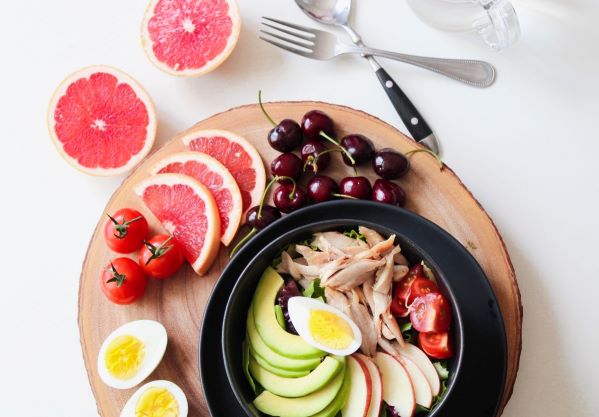
Nutritional Recommendations for Fertility
“Those who take medicine and neglect their diet will be wasting their time and their doctors’ skills” – Chinese proverb-

This quote is especially relevant to this article because despite the latest advances in medicine and science to promote health among the public, there are more and more problems caused by the lifestyle and nutritional habits of modern-day society.
Índice
Nutrition and fertility
In terms of fertility, the situation is no different; both men and women trying to conceive should check their nutritional habits and correct any imbalances if necessary in order to improve their reproductive capacity.
Several studies suggest that the lack of certain nutrients affects reproductive capacity, and certain “toxins” included in food products are also relevant. Many causes of fertilisation difficulties are due to changes in dietary habits, which is why it is essential to take care of one’s diet.
In this article we will discuss the key aspects of nutritional care for people (men and women) who are planning a pregnancy, in order to achieve a successful and healthy conception and pregnancy.
Besides the nutritional aspects for women, we will also emphasize the nutritional aspects for men, typically less known but no less important. Most cases of male-factor infertility are due to low sperm count (oligospermia) or low motility in semen. In both situations, the possibilities of the sperm reaching and fertilising the egg are significantly reduced. Several studies point out the lack of certain nutrients such as folic acid, zinc and antioxidants as causes of these complications.
We will first review specific nutritional elements and then we will make some general recommendations.
Important nutritional elements to consider
Antioxidants
Antioxidants are especially relevant, since several environmental substances to which we are exposed everyday (pesticides, insecticides, heavy metals, etc.) and nutritional elements such as those rich in animal fats, are toxic to our reproductive system due to their oxidative effect (free radicals, responsible for cellular aging). These effects can be counteracted with a diet rich in antioxidants such as vitamin C (responsible for sperm quality, found in citrus fruits, tomatoes and peppers), vitamin E (promotes ovulation and favours implantation in the uterus, found in wheat germ, olive oil and nuts), vitamin A (found in milk fats and whole milk) and beta carotene, which is the precursor of vitamin A (found in carrots, tomatoes, pumpkin, apricots, orange-red and green leafy vegetables).
As you can see, fruits and vegetables are the foods with the highest concentration of antioxidants. Therefore, our best bet would be to make sure we have at least three servings of fruit and two servings of vegetables every day to improve our reproductive health and ultimately improve fertility. This statement is backed up by several studies conducted on men that quantify men’s daily consumption of fruits and vegetables and its correlation with sperm count and motility.
Omega 3
Essential fatty acids (omega 3), preferably from fish and vegetable sources, seem to be a key factor in the ovulation process and in male fertility. They are mainly found in fatty fish.
Folic acid
Folic acid deserves a special mention due to its importance in preventing birth defects in unborn children (in both women and men). A lack of folic acid in one’s diet reduces sperm count and motility, which is why folic acid supplements are already being recommended to men before conception, just as they have been prescribed to women. It is mainly found in green leafy vegetables, legumes and whole wheat cereals.
Zinc
Zinc is important, since its deficiency is associated with menstrual cycle irregularities in women and reduced sperm count and motility in men. It also alters the levels of the masculine hormone, testosterone. Zinc is found in lean meats, marine fish, shellfish and eggs; it is found to a lesser extent in legumes and nuts.
Selenium
Selenium also deserves a special mention, as this mineral nutrient participates in the reproductive function by improving semen quality (sperm count and motility). It has antioxidant properties and promotes the secretion of testosterone. This is why selenium supplements have been marketed alone and with vitamin E. However, excessive consumption of selenium could be counterproductive, which is why its use should always be controlled by a doctor.
General recommendations
Balanced diet
A varied diet that includes fruits and vegetables is highly recommended to provide you with enough vitamins, minerals and antioxidants (iron, zinc, folic acid, selenium, etc.), which are crucial for reproductive health. We must not forget about healthy fats (nuts, olive oil), proteins (from animals, preferably fish) and milk products.
Specific individual needs
Variety does not equal quantity: “…a bit of everything, but in moderation…”. Diets should be adapted to body weight, since being overweight or underweight seriously affects both male and female fertility. A healthy diet should consist of “enough high quality” food.
Natural food
Natural foods are better than prepared foods, since the latter may contain pesticides, preservatives or other chemical products that may act as “hormone disruptors”, causing imbalances in ovulation or sperm production.
Avoid toxic habits
Alcohol, caffeine and soft drinks should be avoided due to their adverse effects on the formation of sperm cells and on egg maturation and their ability to be fertilised.
In conclusion, when a couple is thinking about having children, it is important to evaluate the diet in order to detect whether there is any nutritional imbalance that may affect their fertility. If necessary, an assessment by a nutrition expert should be considered to ensure the correct diet and a possible recommendation of certain supplements before conception for either member of the couple.
Dr Navarro, Endocrinology and Nutrition director of Instituto Bernabeu
IT MAY ALSO BE OF INTEREST TO YOU:
- Pro-fertility medical treatment for obesity
- Fertility endocrinology
- Fertility and endocrinology
- Fertility clinic: first visit
- In Vitro Fertilisation (IVF) in Instituto Bernabeu
- Morales R., Lledó B., Ortiz J.A., Bernabeu R.“Antioxidants treatment effect in patients with sperm DNA fragmentation and the outcome of IVF cycles”XIX International Congress of Andrology. 2009.
- Jaime Mendiola, Alberto M. Torres-Cantero, José M. Moreno-Grau, Jorge Ten, Manuela Roca, Stella Moreno Grau, Rafael Bernabeu. Food intake and it´s relationship with semen quality: A case-control study Fertility and sterility Vol. 91, Nº3, March 2009
- Jaime Mendiola, Alberto M. Torres-Cantero, Jesús Vioque, José M. Moreno-Grau, Jorge Ten, Manuela Roca, Stella Moreno-Grau, Rafael Bernabeu A low intake of antioxidant nutrients is associated with poor semen quality in patients attending fertility clinics Fertility and Sterility, Enero 2009
- J. Mendiola, AM. Torres-Cantero, JM. Moreno-Grau, J. Ten, M. Roca, S. Moreno-Grau, R. BernabeuExposure to environmental toxins in males seeking infertility treatment: a case-controlled studyReprod Biomed Online, 2008;16(6):842-50
